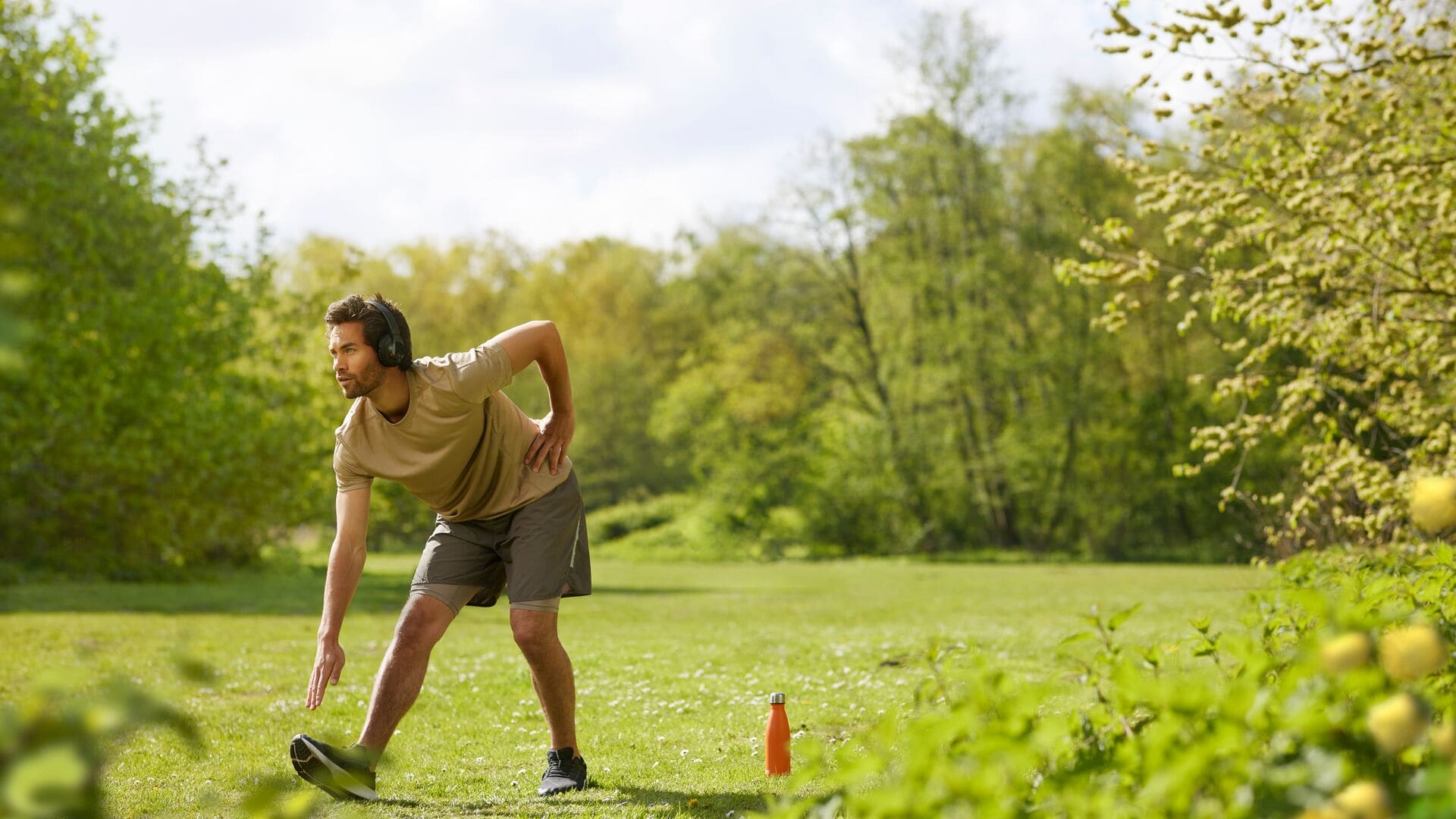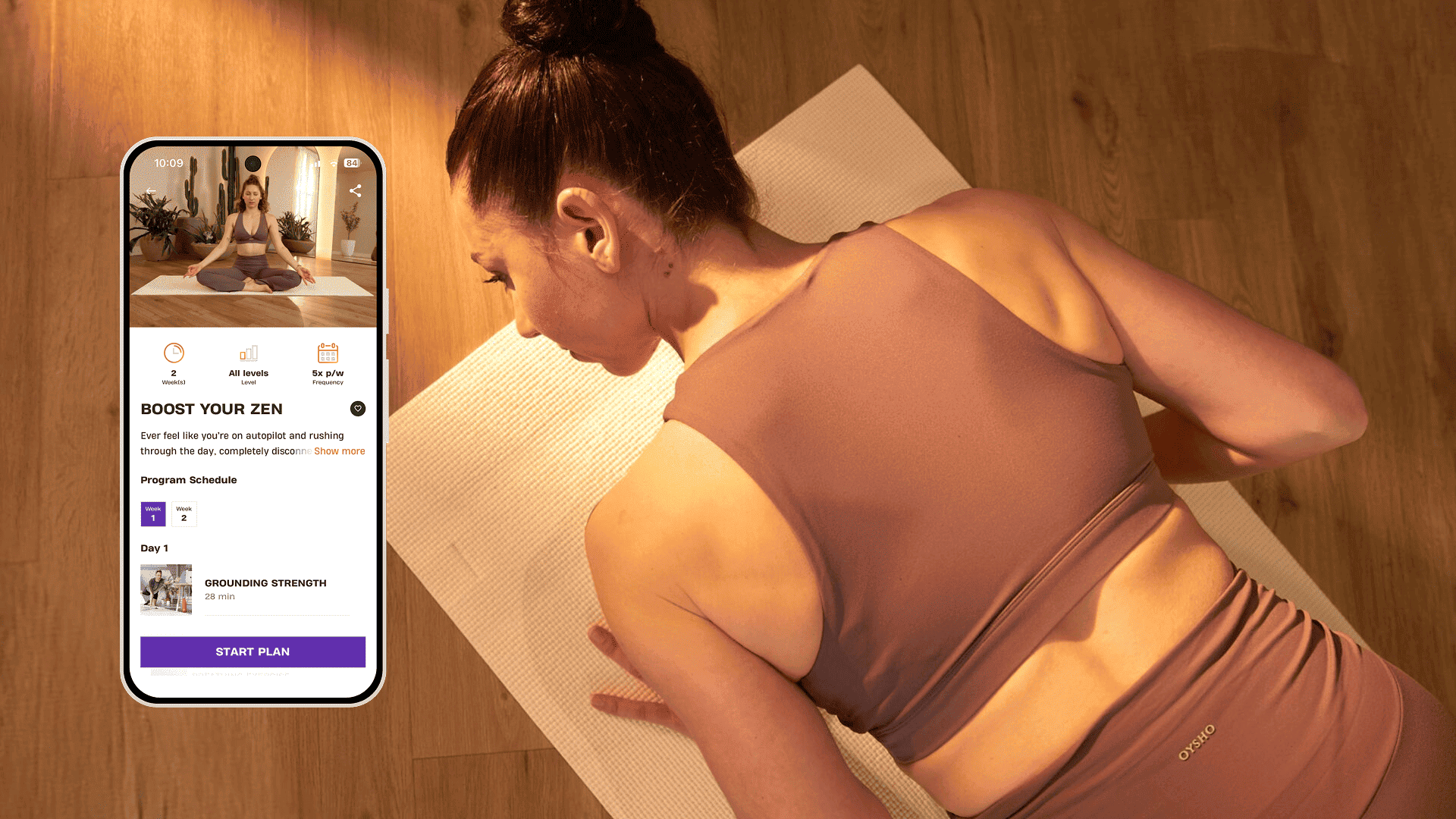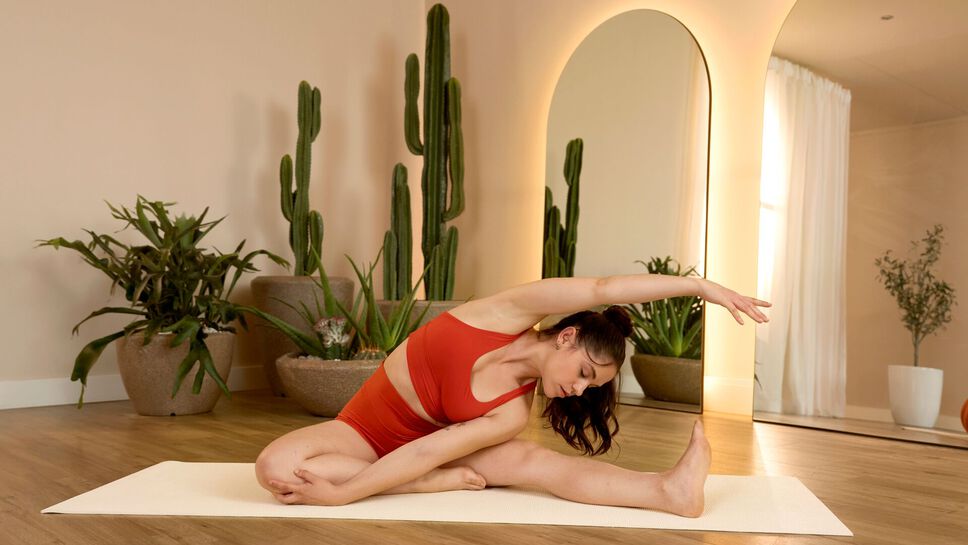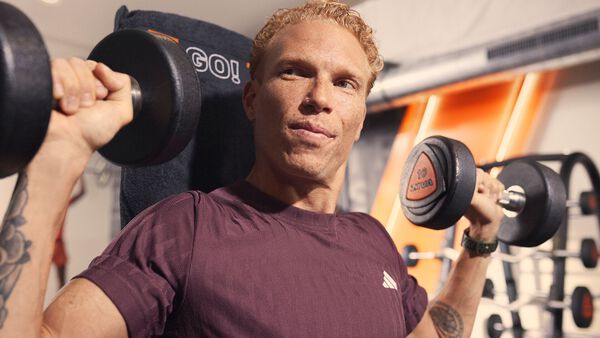Stress affects how your body feels, how you sleep, how you think, and how you move through the day. When it builds up, it gets harder to focus, harder to rest, and harder to enjoy the things that usually help you reset.
Certain daily habits have been shown to lower cortisol levels, calm the nervous system, and build resilience over time. These are small, repeatable actions that help you recover more easily after stressful moments, sleep more deeply, and think more clearly throughout the day.
In this blog, you’ll find six evidence-based habits that help reduce stress and support long-term mental well-being. These are flexible, accessible, and easy to implement in your routine.

1. Practice mindfulness and body-mind exercises
Mindfulness-based practices like yoga, meditation, and tai chi have a significant impact on how your body and mind respond to stress. These practices activate your parasympathetic nervous system, which helps slow your heart rate, lower blood pressure, and calm the stress response.
Studies show that regular mindfulness training lowers cortisol (your stress hormone), reduces inflammation, and improves how your brain handles negative thoughts and emotions. In an 8-week mindfulness program, participants showed lower levels of anxiety, depression, and perceived stress after the program.
These practices work by building awareness of your thoughts and physical state. Over time, they train your brain to pause, refocus, and recover more quickly, rather than reacting automatically or getting stuck in fight-or-flight mode.
How to add mindfulness into your day
- Try a 10-minute guided meditation when you wake up or before bed.
- Join a weekly yoga or body-mind class, online or at the gym.
- Take 2–3 minutes between tasks to do a short breathing check-in.
- Add mindful movement like tai chi, stretching, or slow walks into your rest days.
- Practice body scans: close your eyes and bring your attention slowly from head to toe, noticing each area of your body.

2. Use breathing techniques to calm your system
The way you breathe sends signals to your nervous system. Slow, deep breathing tells your body it’s safe, helping you shift out of stress mode and into recovery. Over time, learning to control your breath can improve focus, reduce anxiety, and support emotional balance.
Research shows that slow-paced breathing increases something called heart rate variability (HRV). This is a measure of how well your nervous system adapts to stress. Higher HRV is linked to better mental and physical health, including improved mood, reduced anxiety, and better stress resilience.
By training your breath, you give your nervous system more flexibility. You learn to recover faster from stressful moments and stay calm in situations that would normally trigger tension or reactivity.
How to use breathwork and HRV training
- Breathe slowly: inhale for 4–5 seconds, exhale for 5–6. Do this for a few minutes to calm your system.
- Try box breathing: inhale 4, hold 4, exhale 4, hold 4. Use it when you're feeling tense or unfocused.
- Use the breathwork sessions in the Basic-Fit app to follow along with clear instructions.
- Practice for 5–10 minutes a day, ideally when you're already calm, like after a workout or before bed.
- Right before something stressful (like a meeting or a hard conversation), take 3 slow breaths to reset.
- After training, take a few slow breaths to help your body shift into recovery mode.

3. Prioritize your sleep habits
Stress makes it harder to sleep well. And when you don’t sleep enough, stress feels even harder to deal with. It’s a cycle that affects your focus, mood, and energy levels throughout the day.
Getting enough sleep helps your body recover and your brain process everything that’s happened. It supports your immune system, balances your hormones, and gives you a better grip on your emotions. When your sleep improves, so does your ability to handle stress.
The good news is that most sleep issues can be improved with small changes to your routine. These habits work best when done consistently, even if you start with just one or two.
How to build better sleep habits
- Go to bed and wake up at the same time every day, even on weekends.
- Give yourself at least 7.5 to 8.5 hours in bed each night.
- Dim the lights and lower stimulation about an hour before bed.
- Stop drinking caffeine at least 6 hours before bedtime.
- Park your phone or screens 30–60 minutes before bedtime.
- Create a wind-down routine: stretch, read, or do a short breathing exercise.

4. Make movement part of your day
Exercise changes how your body responds to stress. Regular movement helps regulate stress hormones, supports recovery, and trains your nervous system to stay balanced under pressure. Even a single session can release tension and help you shift gears mentally.
Studies show that consistent physical activity is linked to lower levels of anxiety and depression, and a reduced stress response in the body. People who exercise regularly recover faster from stressful events and report better emotional balance overall. Training before or after a stressful event can also help reduce how strongly your body reacts in the moment.
Movement doesn’t have to be long or intense to be effective. A few consistent sessions throughout the week already support your stress recovery and mental balance.
How to be active throughout the day
- Schedule activity into your calendar like a meeting.
- Take short active breaks every 30–60 minutes (e.g., stretch, walk around).
- Use stairs instead of elevators whenever possible.
- Walk or bike to nearby destinations instead of driving.
- Stand while working using a standing desk or high surface.
- Set reminders to get up and move every hour.
- Add a morning or lunchtime walk to your routine.
- Try a short video workout at home if you’re low on time or want a simple start.
- Join a group class at your club to stay motivated and have fun with others.
If you don't know where to start, you can always use the training programs in the Basic-Fit app to follow a plan that matches your level and goals.

5. Spend time in nature
Being in nature helps your body shift out of stress mode. Stepping into green spaces lowers cortisol, slows your heart rate, and gives your mind a break from overstimulation.
Research shows that time spent in natural environments like parks, forests, or even just looking at trees or greenery can reduce both physical and mental signs of stress. Even digital nature (like images or sounds) can support recovery in high-stress situations.
How to spend more time outdoors
- Walk or bike through a green route on your way to work or the gym
- Do your cooldown or stretch outdoors when the weather allows
- Train in an outdoor area when you want a change of scenery
- Take short breaks outside during the day
- Add natural light and plants to your indoor space to soften your environment
- Use nature sounds or visuals during breathwork or wind-down routines

6. Use time management to reduce overwhelm
When life feels overwhelming, it’s often not just the amount of work, but the lack of structure that makes stress build up. Planning, organizing, and setting clear priorities help you feel more in control, which reduces mental overload and decision fatigue.
Research shows that people who use time management skills like goal-setting and task prioritization tend to report lower stress levels and higher emotional well-being. These habits make your day feel more manageable and give you more mental space to focus on what matters mosr to you.
Planning habits that ease stress
- Start the day with a 3-minute plan: What’s most important today? What can wait?
- Group similar tasks together so your brain doesn’t have to keep switching focus
- Use your calendar to block out training, work, and wind-down time
- Break big goals into smaller steps, and spread them across the week
- Leave short gaps between tasks in case things take longer than planned.
- Get things out of your head and onto paper to reduce mental overload.
- Plan your workouts ahead so they're locked into your week

Manage stress with the Basic-Fit app
When you're stressed, it helps to have structure, not more decisions. The Boost Your Zen plan in the Basic-Fit app gives you a simple rhythm to follow when your head feels full and your energy is low.
You get a mix of light movement, breathing sessions, and recovery tools that create space in your week for the break you deserve. You don’t have to plan it, just follow along.
By the end, you’ve built a calmer routine, and you know how to return to it when things start to pile up again.
Here’s what the plan includes:
- Four low-impact workouts per week: strength, pilates, walks, or yoga
- One calming habit practice per week (short, realistic actions you can repeat)
- One guided breathing session per week to reset your system
- Two sleep meditations per week to help you wind down
- One short blog per week with tips on how to manage your stress
What to remember
Small actions shift how you feel, move, and recover. A walk, a breath, a better night of sleep, each one helps you handle daily stress with more control and less overwhelm.
You don’t have to start with everything at once. Choose one habit. Make it part of your routine. Then move on to the next.




